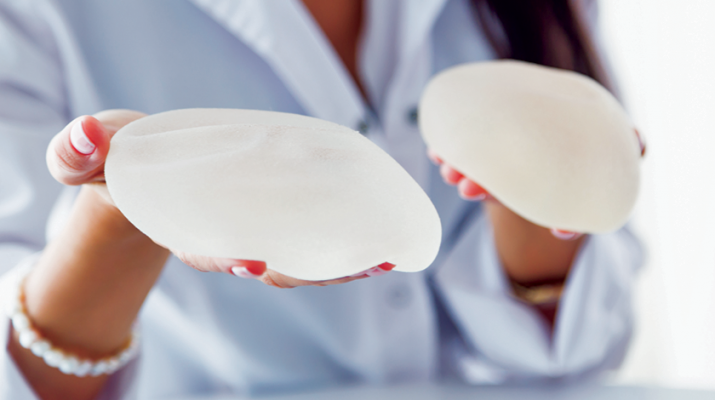Experienced specialist says do it for the right reasons
By Barbara Pierce

Breast implant surgery — to increase breast size — is a popular cosmetic and plastic surgery procedure. It involves placing implants under the breast tissue or chest muscles. More and more women are undergoing voluntary breast augmentation surgery like breast augmentation in Exton, PA every year through services that do breast augmentation.
The Federal Drug Administration has approved two types of breast implants: saline (salt water solution)-filled and silicone gel-filled. Both have a silicone outer shell and vary in size, shell thickness, and shape. FDA-approved implants undergo extensive testing to establish reasonable assurance of safety and effectiveness.
Although many women say that silicone gel implants feel more like real breasts than saline, they pose more of a risk if they leak. Both saline and silicone come in different sizes. This is something to discuss with your physician if you are considering this Plastic Surgery in Irvine, CA or breast augmentation in Naperville, IL.
According to the FDA, there are risks associated with all breast implants, including scar tissue, breast pain, infection, leakage or rupture with deflation of implants, changes in nipple and nipple sensation. Some women with implants have reported a range of serious health problems that they believe are linked to their implants and get breast implant illness treatment. Studies have not confirmed there is a connection. Correcting these complications might require more surgery, either to remove or replace the implants.
Mohawk Valley In Good Health newspaper asked Dr. Carl Krasniak of the Solcum-Dickson Breast Care Center, New Hartford, to share his expertise, from his 30 years of experience with breast implant surgery:
Q.: How safe is breast implant surgery?
A.: The vast majority of women do very well with this procedure. This is confirmed by the FDA, which states that a majority of patients are satisfied with the results of their surgery.
Q.: Does it have risks?
A.: It is surgery. Every surgical procedure has risks. Most patients do well and don’t have any problems.
Q.: Are increasing numbers of women having this surgery?
A.: Yes, the number of women having it has been growing 4 to 5 percent every year for the past few years. It’s the most popular type of cosmetic surgery.
Q.: What about the risk of implant ruptures or leaking? We understand this is a risk and the reasons are not well understood.
A.: Yes, there is a risk or leaking or rupturing. After about seven to nine years, your chances of the implants deflating go up. They are man-made — your tires wear out; your shoes wear out; everything man-made wears out.
If your implants are saline, your body will absorb the saline and your breasts will be flat. Your option then would be to replace them, which requires surgery.
If they are silicone, and they rupture, you may have issues. You can have a silent rupture that you aren’t aware of.
Q.: What do you suggest if I am considering breast implant surgery?
A.: Do it for the right reasons. If a woman is doing it for cosmetic reasons, I interview her twice to make sure she has thought about it. It is not surgery to do on an impulse. I interview her to make sure she is not doing it to please someone else, but she has carefully thought about this decision.
In 2013, Angelina Jolie sparked a debate when she announced that a genetic predisposition to breast cancer led her to undergo a preventive double mastectomy. She revealed that she carries a “faulty” gene, BRCA1, linked to an increased likelihood of breast cancer. “Once I knew that this was my reality,” she wrote in The New York Times, “I decided to be proactive and to minimize the risk as much I could.”
About 12 percent of all women will develop breast cancer sometime in their lives, according to the National Cancer Institute. But for women with the gene mutation, the risk is closer to 60% to 70%.
Q.: Are preventive mastectomies like Jolie’s common?
A.: No, they aren’t common. However, if a woman has a strong family history of breast cancer and genetic testing indicates a predisposition for breast cancer, she may wish to consider a bilateral prophylactic mastectomy. They can also opt for a breast reduction surgery. Consult experts like Karol Gutowski, MD – Breast Reduction for professional advice.
We don’t understand everything about genes and how they impact breast cancer.
Q.: In conclusion, what do you recommend to women who are considering breast implant surgery?
A.: It is surgery. Every surgery carries a risk. This surgery is usually tolerated well. Most women are happy with it, but make sure you are doing it for the right reasons and you have investigated and carefully thought it through.
I’ve been doing this surgery for 30 years, and found that most women are happy that they had the surgery. Often, when they come back for their follow-up a year later, they say, “I wish I’d gone bigger.”
Most are so happy that they had the surgery.
For more discussion of considerations regarding breast implant surgery, you can consult experts who provide Breast Augmentation in Beverly Hills, CA or Breast Augmentation in the Chicago Area.

